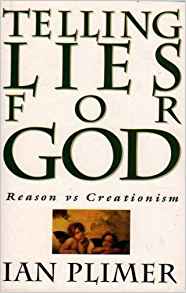Dr Sarah of FreethoughtBlogs.com Geeky Humanist has posted two interesting posts in favour of the historicity of Jesus. It makes a wonderful change to read arguments on this topic that are expressed in a civil and calmly reasoned tone. Her first post is Jesus mythicism vs. Jesus historicity: an argument in favour of the latter; her more recent one, Jesus mythicism vs. Jesus historicity: a reply to R. G. Price. This post gives my take on her earlier essay. (All formatting and bolding in Dr Sarah’s comments is my own.)
If Jesus did exist, we have to explain how, within a relatively short time of his death, he was being spoken of as some kind of mythical semi-deity in the writings of some of his followers.
If Jesus was a myth from the start, on the other hand, we have the reverse problem of having to explain how he then came to be written about and taught about as an actual person who walked the face of the earth and did normal (as well as miraculous) things.
Dr Sarah finds the first option the more simple one.
My first thought is that the two options are embedded in faulty, or at least questionable, assumptions. If the gospel figure of Jesus did indeed reflect the life of an ordinary person then the two horns of the dilemma are both a quandary. If, on the other hand, we pause to reflect that the earliest gospel that we believe to have been written was the Gospel of Mark, then we have quite different options. That’s because in the Gospel of Mark the Jesus figure is most unlike any ordinary human figure in ancient (or modern) literature. He is a human, of course, with brothers and sisters and a mother, and he eats and drinks. But he is unlike any other figure in works that we know to be ancient biographies or histories. He is presented to us “cold”, that is, without us having any knowledge of who the biographer is or why he is even writing about him. Without any explanation of how the author came to know anything about his life, he is depicted as engaging in conversations and activities with spirit beings both in heaven and on earth. He calls and mere mortals drop all their livelihoods in a moment and obey. He reads peoples minds and hearts. He exercises God’s prerogative to forgive sins and rules the physical elements. He talks in mysteries so none can understand, and though he explains all his mysterious messages to his disciples, even they don’t truly believe. Even his disciples are far from genuine human beings: they walk as if mesmerized into obedience to follow him at his call; they are unrealistically stupid in not recognizing his power despite seeing it demonstrated time and again; they, along with the crowds in the narrative, come and go as the author needs them, not as per any realistic plot device. In other words, Jesus is depicted in the earliest gospel as a figure of a human but certainly something trans-human. The story-line is absurd — quite against the grain of the way real people really are and how real people really respond — if read “realistically”. But if read a ciphers, or symbols, or personifications, or mouthpieces for some particular set of beliefs and doctrines, if read as a parable or symbolically, the story makes perfect sense.
We have evidence to encourage us in our view that this earliest gospel’s Jesus and disciples (and even his enemies and other persons that appear in the narrative) are far from realistic or natural. That evidence lies in the way that the subsequent evangelists (“Matthew” and “Luke” — even “John”, some would argue) changed Mark’s Jesus and disciples into somewhat more realistic figures. (“John”, on the other hand, went in the other direction and made him even less human.) “Luke” even reduces Jesus to a martyr in the tradition of the Maccabees.
With that background, the two horns of the dilemma are modified somewhat:
- If Jesus did exist, we have to explain how, within a relatively short time of his death, he was being spoken of as some kind of mythical semi-deity in the writings of some of his followers.
- If Jesus was a myth from the start, on the other hand, we have the reverse problem of having to explain how he then came to be written about and taught about as a parabolic or allegorical type of person who walked the face of the earth conversing with humans and spirits and did many inexplicable things and spoke in ways that his hearers did not understand.
Or maybe I should make the dilemma a triceratops with a third horn:
- If Jesus was a myth from the start, on the other hand, we have the reverse problem of having to explain how two of the three canonical evangelists who followed their earliest predecessor “corrected” his account and made him and his followers a little more realistically human.
Okay, you might think I’m playing with that second option a bit too loosely. But how else might it be worded given what we know about the Gospel of Mark’s Jesus and characters generally?
Dr Sarah proceeds to set out her reasons for embracing the historicity of Jesus in five dot points. I address each one. Continue reading “A Response to Dr Sarah, Geeky Humanist, on the Jesus Question”
Like this:
Like Loading...

